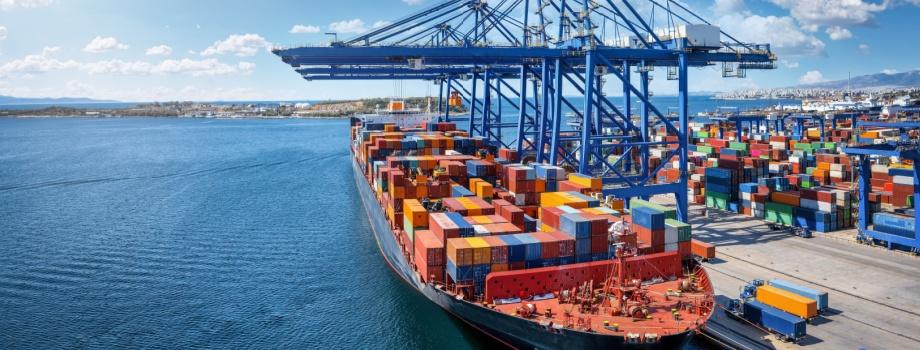
In The Alion (Tanga Pharmaceuticals Plastics Limited and others v Emirates Shipping Line FZE [2025] EWHC 368 (Comm), the High Court of Justice examined whether a group of cargo interests brought their claims too late after their goods were carried aboard the MV Alion. At the heart of the dispute was the clash between standard industry protections under the Hague Rules and additional time-limiting clauses found in the bills of lading issued by Emirates Shipping Line.
The outcome hinged on whether the standard one-year limitation period was displaced by more restrictive provisions added contractually. The Commercial Court rejected an attempt by a carrier to rely on contractual terms imposing a shorter time-bar than Article III.6 of the Hague Rules.
Background
In September 2021, 548 containers were loaded aboard the MV Alion for shipment to Mombasa, Kenya, under identical Bills of Lading governed by English law and jurisdiction. Emirates Shipping Line acted as the contractual carrier, having chartered the vessel under a time charter. Partway through the journey, the vessel experienced engine failure in the Arabian Sea.
This led to salvage efforts being carried out under a Lloyd’s Standard Form of Salvage Agreement, followed by the declaration of general average. The cargo eventually reached Mombasa in December 2021, where it was released after appropriate security was posted.
Settlements with the salvors were finalised in mid-2022. A few months later, the cargo interests informed the carrier of their intent to seek compensation for amounts paid during the salvage settlement, as well as for some particular average losses. The Defendant agreed to two extensions, first until March 2023 and then to June 2023, on the condition that the claims weren’t already time-barred. The claim form was issued on 16 June 2023.
The Legal Conflict
The carrier’s case rested on two specific provisions found in Clause 18 of the Bills of Lading:
- The first required non-damage-related claims, like expenses and charges, to be notified and documented within 20 days of the cargo’s delivery.
- The second, more controversially, stated that no legal action would be considered properly filed unless the carrier or the ship was actually served within a year.
On the other hand, the cargo interests relied on Article III Rule 6 of the Hague Rules, which provides a one-year time limit from delivery for legal claims. More importantly, Article III Rule 8 nullifies any contractual clause that reduces the carrier’s liability or shortens the time allowed to bring a claim. The central legal question became: which set of rules controlled, Clause 18 or, the Hague Rules as incorporated by Clause 2, also known as the “Clause Paramount”?
The Court’s Analysis and Reasoning
- Justice Bright began by considering the legal weight of Clause 2, which expressly incorporated the Hague Rules into the contract. This clause, labelled “paramount,” was given particular importance. In shipping practice, such a clause is generally understood to override any other term that conflicts with the Hague Rules.
- The court found that Clause 2’s inclusion of Article III Rule 8 meant that any later clause (like Clause 18) that attempted to reduce the cargo interests’ rights had no effect. Notably, the drafters had chosen to include certain Hague provisions while omitting others, demonstrating a clear intention to give Rule 8 full force. Justice Bright also emphasised that the Bills of Lading didn’t contain any wording indicating that Clause 18 should override Clause 2. The Judge also accepted that clear words would be required to agree to a shorter time-bar than Article III.6, applying MUR Shipping BV v RTI Ltd[2024] UKSC 18, per Lord Hamblen and Lord Burrows at [43].
- In relation to the 20-day notification rule, the court found that even claims related to economic loss, like those resulting from salvage expenses, could be seen as “damage to goods.” Drawing from case law, particularly The Thorco Lineage, the Judge held that damage under the Hague Rules need not be physical. The economic loss arising from the vessel breakdown and the subsequent salvage lien was enough to bring the claims within the scope of Article III.
- Finally, Justice Bright considered the clause requiring actual service of the claim form within a year. Under English procedural rules, issuing the claim form is what stops the clock, not service. Therefore, requiring service within a year imposed an additional barrier and breached Article III Rule 8. The court refused to accept a provision that could allow the carrier to escape liability simply because the claim form hadn’t been served in time.
Conclusion
The court ultimately sided with the cargo interests, rejecting the Defendant’s application for summary judgment. It held that the Bills of Lading were governed by the Hague Rules as incorporated, and that any attempts to contractually reduce the limitation period or impose extra requirements, such as early notice or service, were void and unenforceable. The cargo interests’ case was therefore allowed to proceed. This case once again emphasises the importance of using clear wording in contracts.
Need advice?
Discover more about our specialised services for the shipping and logistics sector, or reach out to us at [email protected] for expert guidance.






